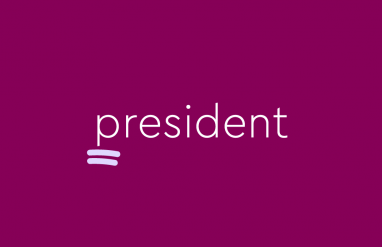If you have been wondering if your grammar has been correct when it comes to has been, have been, and had been, you have come to the right place.
In this article, we’ll break down the difference between these three verb phrases and explain how you can always know which one is correct to use.
⚡ Quick summary
Has been and have been are both present perfect forms of the irregular verb be. Has been is the form used with a third person singular subject (including the pronouns she, he, and it—but not singular they). Have been is the form used with any other subject (including the pronouns I, we, and they). Had been is the past perfect form of be and is used regardless of the subject. All three of these phrases are combined with the present participles of other verbs to form their past perfect continuous (as in had been working) and present perfect continuous (as in has/have been working) forms.
has been vs. have been
The word been is the past participle of the irregular verb be. Verbs are typically considered to be irregular verbs if their past tense form and/or past participle are not formed by adding -ed or -d to the end of their root form. This is the case with be, as its past tense forms are was/were and its past participle is been.
Be is an especially odd case of an irregular verb as it changes considerably when conjugated into its different forms (conjugation involves changes based on the subject and tense of the sentence). The verb be is conjugated as follows:
- be: root/infinitive
Example: I’d like to be helpful.
- am: first person singular present tense
Example: I am helpful.
- is: third person singular present tense
Example: She is helpful, and he is, too.
- are: second person singular, all plurals present tense
Example: They are both helpful.
- was: first and third person singular past tense
Example: He was helpful yesterday.
- were: second person singular and all plurals past tense
Example: They were both helpful yesterday.
- been: past participle
Example: She has been helpful, and they have been helpful, too.
- being: present participle and gerund
Example: You are being helpful. (present participle)
If you’re confused about how been is different from being, check out our guide to been vs. being.
As the past participle, been is the form of be used in the present perfect tense. In short, the present perfect tense is used to indicate that an action has both happened in the past and continued into the present. The present perfect tense combines the past participle—in this case, been—with either has or have depending on if the subject is third person singular or not. Has been is used with a third person singular subject (with the exception of singular they) and have been is used with any other subject.
When deciding between has been and have been, it is important to determine what the subject of the sentence is in order to adhere to subject-verb agreement. Be careful of tricky things like prepositional phrases and compound subjects. For example:
- The box of video tapes has been there this whole time. (The subject, box, agrees with the verb, has been.)
- Four leopards, three monkeys, and a parrot have been part of the zoo for years. (The compound subject acts as a plural and agrees with the verb, have been.)
Note: The verb phrase has been is not to be confused with the noun has-been, which is an informal term for someone who is thought to be no longer as good or effective as they once were.
Has been and have been are also used to perform another important grammatical task. They are combined with the present participles of verbs to form the present perfect continuous tense of those verbs. For example:
- He has been studying for hours.
- They have been driving since noon.
To learn more about the present perfect continuous tense, look here!
has been and have been vs. had been
As the past participle of be, been is also used to form the past perfect tense. The past perfect tense uses the past participle—in this case, been—with the word had. Unlike the present perfect tense, the word had is used regardless of what the subject is.
For example, had been is correct in both of these sentences despite the fact that one sentence has a singular subject and the other has a plural subject:
- The cat had been quiet all morning.
- The cats had been quiet all morning.
There are a few specific reasons why we use the past perfect verb tense. When we use the past perfect tense, the reference point in regards to time is in the past.
- The store had been closed for three years. (Here, had been indicates that the three-year period is measured from a point in time in the past, as in By 1985, the store had been closed for three years.)
This is different from the present perfect tense, where our reference point is the present. For example:
- The store has been closed for three years. (In this case, the use of has been indicates that the store has been closed for three years dating back from the present moment.)
The phrase had been also has another important role. It is combined with the present participle of verbs to form the past perfect continuous tense. For example:
- By the time I arrived, they had been waiting for hours.
has already been and has been already
You can use adverbs such as already with has been, have been, and had been. It is typically recommended to put it in the middle of the verb phrase in order to avoid confusion and make it clear that the adverb is modifying a verb. For example:
- She has already been to California twice this year.
- The Patriots have already been to the Super Bowl multiple times.
- The plants had already been watered by the time I got to the greenhouse.
Typically, other adverbs tend to follow this same pattern:
- He has previously been on the late night talk show.
- We have never been to Portugal before.
- The store had just been opened by the time I arrived.
Although such adverbs are sometimes placed before the verb phrase, it usually sounds unnatural and stilted to place them after.
Examples of has been, have been, and had been used in a sentence
Let’s take a look at the different ways we can use has been, have been, and had been in sentences.
- Melody has been my music teacher for the past five years.
- Gas prices have been outrageous the last few months.
- We got lost because we had been reading the map upside-down the whole time.
- There have been many good leaders at this organization, but she has been the best.
- Our performances have been great recently, but they had been a disaster before we started practicing regularly.













